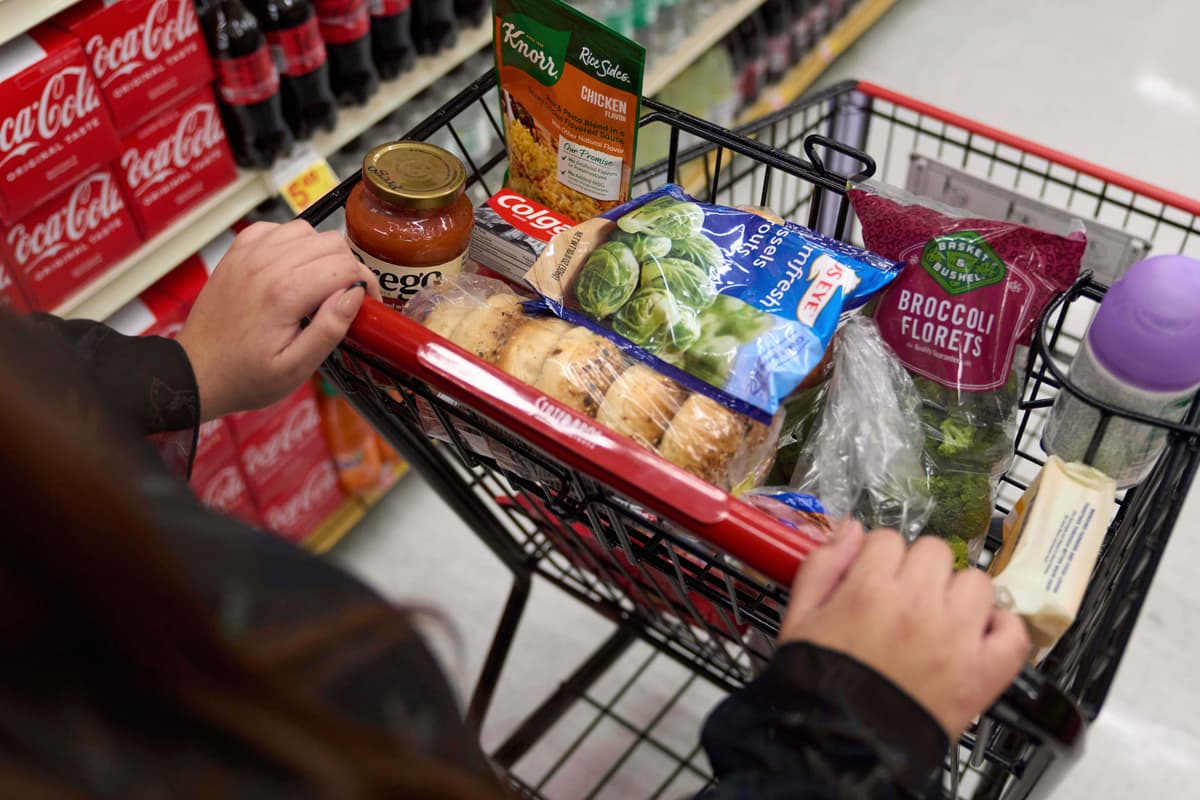Food Banks Brace for Influx of Needy People as Federal Food Stamp Program To Go Unfunded
‘Bottom line, the well has run dry,’ a notice on the USDA website says.

Food banks across the United States are sounding the alarm as they face unprecedented demand, dwindling supplies, and the looming threat of cuts to federal food assistance programs.
More than 40 million low-income people — about 1 in 8 Americans — depend on food stamps, now known as the Supplemental Nutrition Assistance Program. But the Trump administration has announced that it will not tap $5 billion in contingency funds to keep SNAP operations running through November.
“We are seeing an uptick from those who were afraid of losing their benefits coupled with our federal worker population who will not be getting a paycheck next week,” Haymarket Food Pantry’s executive director, Eileen F. Smith, told The New York Sun. Her food bank covers a more affluent area in Prince William County in Virginia, about 30 miles west of Washington, D.C., where many federal workers live.
“In our area, we have both federal workers and contractors who are affected. We are in the beginning stages of having a special food distribution next weekend for the federal workers who have been impacted,” Ms. Smith said.
A notice currently on the U.S. Department of Agriculture website blames Democrats for the coming crisis. “Senate Democrats have now voted 12 times to not fund the food stamp program, also known as the Supplemental Nutrition Assistance Program (SNAP). Bottom line, the well has run dry,” the notice says.
“At this time, there will be no benefits issued November 01. We are approaching an inflection point for Senate Democrats. They can continue to hold out for healthcare for illegal aliens and gender mutilation procedures or reopen the government so mothers, babies, and the most vulnerable among us can receive critical nutrition assistance,” the USDA says.
The current federal government shutdown, which began October 1, now ranks as the second-longest in U.S. history. While the Republican administration initially protected SNAP funding for October, the November cutoff significantly expands the shutdown’s impact on vulnerable populations.
The strain on low-income Americans intensified earlier this year when the Trump administration terminated programs that had injected over $1 billion into schools and food banks. Now, with the potential for further disruptions to federal aid, both the people who rely on these services and the organizations that provide them are bracing for a difficult period.
According to Feeding America, a national network of food banks, food pantries provide about one meal for every nine provided by SNAP. These organizations rely on a mix of public and private donations, USDA programs, and grant funding to operate.
“When you take SNAP away, the implications are cataclysmic,” the CEO of Feeding America, Claire Babineaux-Fontenot, told the Associated Press. “I assume people are assuming that somebody’s going to stop it before it gets too bad. Well, it’s already too bad. And it’s getting worse.”
The pressure is already visible on the ground. At the Philadelphia area, the executive director of the Share Food Program, George Matysik, reported that his warehouses have never been so empty, a problem made worse by a state budget impasse that cut funding.
“I’ve been here seven years,” Mr. Matysik told the AP. “I’ve never seen our warehouses as empty as they are right now.”
In response to the crisis, some state governments are stepping in. Governor Kathy Hochul of New York announced she is fast-tracking $30 million in emergency food assistance to restock pantries. Similarly, Governor Michelle Lujan Grisham of New Mexico said her state would expedite $8 million in funds allocated for food banks. Officials in Louisiana, Vermont, and Virginia have also committed to maintaining aid flow despite federal uncertainty.
Governor Glenn Youngkin of Virginia, a Republican, said he plans to declare a state of emergency to continue to provide benefits to SNAP beneficiaries. Governor Jeff Landry of Louisiana, another Republican, said he will make sure “seniors, individuals with disabilities, and children who rely on food stamps do not go hungry in Louisiana.”
However, not all states are in a position to fill the gap, especially without the guarantee of federal reimbursement. Officials in Arkansas, for example, are directing residents to food pantries, charitable groups, and even friends and family for support, highlighting the patchwork of responses across the country.
Ms. Smith praised Mr. Younkin’s effort to offer a safety new for those in need. She added that “in terms of helping the families who are having trouble right now (our numbers have climbed overnight) money or donations are greatly appreciated.”

